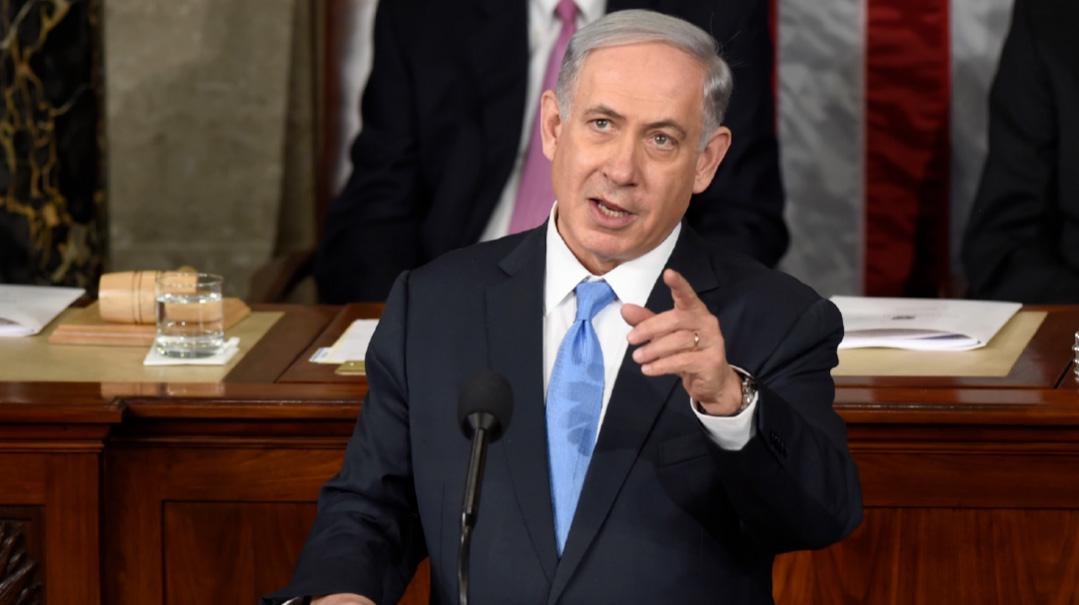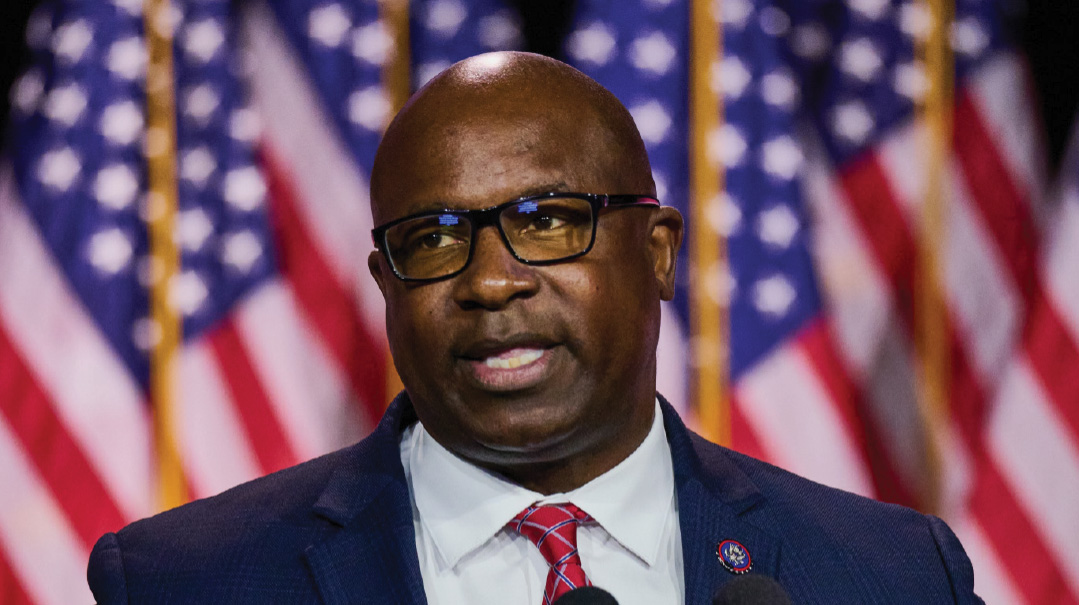What Bibi Should Tell Congress

Israel needs to ramp up arms production — and wean itself off American aid

Photos: AP Images
Sometime in the next month, Binyamin Netanyahu will address a joint session of Congress for the fourth time in his 16-plus years as prime minister of Israel.
His first congressional address in July 1996 came within a month of forming his first government after he defeated Shimon Peres in a direct election for prime minister.
Bibi brought down the House (and the Senate) when he said: “In the next four years, we are going to begin the long-term process of gradually reducing the level of your generous economic assistance to Israel. And I am convinced that our economic policies will lay the foundation for total self-reliance and great economic strength.”
Bibi kept his word. He and President Clinton negotiated a deal for a ten-year phaseout (1998–2008) of America’s annual $1.2 billion economic assistance grant. It wasn’t a total loss — half of the reduction was added to Israel’s existing $1.8 billion annual military aid package.
The phaseout did not faze Israel’s economy. According to the World Bank, Israel’s GDP, a measurement of economic output, grew from $120 billion to $220 billion during those ten years. Today, Israel’s GDP is above $500 billion and continues to prosper without US government largesse.
One can argue — and many do — that the extra US military aid is still a key to Israel’s economic growth, freeing Israel’s economy to invest in more butter and fewer guns. Tell that to irate Israeli consumers periodically confronted with butter shortages on supermarket shelves.
All that aside, Netanyahu has not been Israel’s only prime minister in the last 28 years, even though it sometimes seems that way, and some of his successors backtracked on his deal.
In 2007, just as Israel was receiving its last pennies of economic aid, Prime Minister Ehud Olmert sent a delegation to Washington to reverse the phaseout by restoring the cuts, allotting them to additional military assistance.
At the time, Roni Bart, a senior research associate at the Institute for National Security Studies (INSS) at Tel Aviv University, wrote that “this is not necessarily a wise course,” even if it made sense in the moment. Olmert’s short-term goal was to leverage the last two years of a friendly George W. Bush administration to obtain additional military aid at better prices when the costs of sophisticated weapons systems were ballooning.
His strategy had long-term drawbacks. Bart predicted that despite, or perhaps because of, the strong pro-Israel lobby, many American politicians would soon view support for Israel as a liability, both financially and geopolitically, and that US military aid came with too many strings attached that strangled Israel’s domestic defense industry.
Forward Thinking
Bart wasn’t the only analyst ahead of his time.
Some of the most forward-thinking ideas I’ve seen come from the Foundation for Defense of Democracies (FDD), a think tank based in Washington, D.C., which issued a research memo in March entitled: “How to Ensure Israel Has the Weapons It Needs.”
FDD researchers Bradley Bowman and Richard Goldberg contend that for Israel to ensure it has the weapons it needs in the future, it must pursue a hybrid strategy focused on quickly acquiring key munitions in large quantities from the United States while it’s still possible, and dramatically expanding its defense industrial base (DIB) to prevail in a drawn-out, multi-front war against Iranian proxies.
However, Israel is hampered in this regard. Israel is a technological superpower, not an industrial one. It lacks the industrial capacity to build many of the platforms, weapons, and munitions it needs.
Israel’s “Big Three” defense companies, Rafael, Israel Aerospace Industries, and Elbit, are in the top third of the Defense News rankings of the world’s 100 largest defense firms. They have been operating virtually around the clock since 10/7, ramping up production, despite being shorthanded while many of their key workers are on IDF reserve duty.
Even when they’re at full strength, their manpower is too small to support Israel’s needs for rapid expansion.
The FDD think tank cited senior former Israeli officials who estimated that these firms employ some 40,000 people focused on defense research and development. It’s a very specialized workforce that would be difficult to expand significantly.
Israel added some $15 billion in emergency funding to the annual $20 billion the government budgeted for defense before the war, but even that extra infusion falls short of current needs.
Based on how the FDD crunches the numbers, even if Israel spent up to $8 billion more than the $35 billion it allocated this year, and maintained that level for years, it can only reduce — but not eliminate — its reliance on foreign suppliers for the weapons it needs most.
First and Last Chance
To make a significant dent in that reliance, Israel would need to make major investments in building new facilities, establishing new production lines, and expanding its “low-tech” defense workforce.
Bowman and Goldberg contend: “There is an underutilized workforce of Israelis eager to defend their country who should be educated, trained, and appropriately compensated to produce the weapons Israel needs.”
The researchers contend Israel should focus on the munitions Washington may deprive Israel of in a major future conflict, or munitions that are most likely to be diverted to US military needs if the United States finds itself at war — mainly air-launched precision-guided munitions — and producing or procuring mortars, accurate artillery, tank shells, and smoke shells, payloads for drones, and select maritime requirements. They also recommend maintaining ongoing research and development in cutting-edge, game-changing systems, such as hypersonic missile defense, directed energy, unmanned vehicles, and counter-unmanned aerial vehicles.
It’s a tall order in a short time. Is Bibi up to it? Washington’s unbearable hot, muggy summer is just beginning, but that won’t stop many of Netanyahu’s congressional adversaries from extending a frosty greeting.
If the last four months of the Biden administration indicate what the next four years of a second Biden term might resemble, Israel better buckle up and buckle down. And even a Trump administration won’t mean a free ride. America’s 45th has made it clear that if he becomes America’s 47th, foreign countries will have to meet new, tougher terms for foreign aid.
Israel must work fast and work smart. When Bibi takes to the congressional podium, perhaps the time is ripe to rip a page out of his 1996 playbook and tell Congress: “We are going to begin the long-term process of gradually reducing the level of your generous military assistance to Israel.”
Netanyahu weaned Israel off US economic aid in his first term. Perhaps he can cement his legacy by doing a repeat performance on military aid, in what might well be his last term.
(Originally featured in Mishpacha, Issue 1015)
Oops! We could not locate your form.







